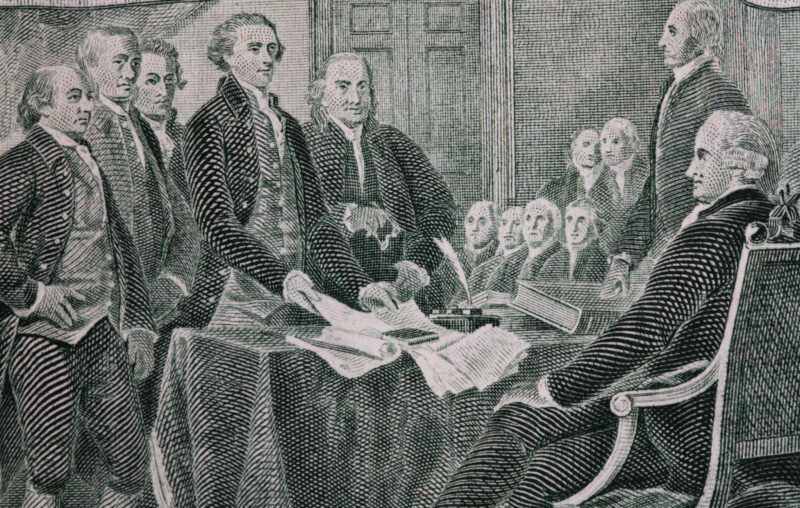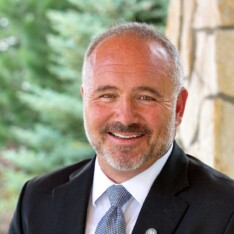This Independence Day

This Independence Day, we recall how strangely beautiful the American Founding was. It remains the first of its kind, often imitated, never fully replicated.
The American Founding, announced to the world by a Declaration of Independence that appealed to “the opinions of mankind,” was a unique blending of political elements, some ancient, some modern. Traditions mattered, and so did timeless, abstract ideas.
The Americans understood their own Revolution in mostly modern terms. Unlike Aristotle, who taught “revolution” as the unending cycle of regimes, continuously transforming from one kind to another, the Americans described their Revolution as an overturning of an unjust political order. They had the audacious goal of creating a novus ordo seclorum, a “new order of the ages,” something undreamt by classical thinkers.
The American Founding featured other modern concepts, institutions, and principles, such as the Enlightenment idea that every human being possesses universal equal individual natural rights because they are inherent to human nature. There were no natural right regimes in the ancient world.
Americans rejected old practices such as divine right monarchy, Papism, religious persecution, theocracy in all forms. They disestablished their churches. In America, a citizen’s civil rights would not depend upon a confession of sectarian faith, as Jefferson explained in his Virginia Statute of Religious Liberty.
They helped others understand that any government lacking the consent of the governed is illegitimate. They adopted a written constitution, authorized by the people, that clearly grants, defines, and limits government power with a view that the only proper purpose of government is to protect the individual rights of citizens, and nothing more.
They reserved for themselves a large realm of individual privacy, in which each citizen is free to pursue happiness, use his own property and run his own business, worship God as (and if) he chooses, raise and educate his own children, employ his labor as he sees best and keep what he produces and earns, trade with others who want to trade, and speak openly, all without government interference.
This was modernity at its best.
The American Founding also borrowed from the old and traditional. Immediately following a modern revolution, America experienced a founding that was classical in character, complete with lawgiving “founders”—something common in the ancient world. The Americans were not like the French, whose revolution devoured itself and required Napoleon’s heavy hand to stop.
According to the Declaration of Independence, “when a long train of abuses and usurpations, pursuing invariably the same object evinces a design to reduce them under absolute despotism, it is their right, it is their duty, to throw off such government, and to provide new guards for their future security.” The Americans showed the world how to do both: throw off a bad government, and provide new guards for their rights.
The pseudonym used by the authors of The Federalist, “Publius,” harkens readers back to classical Roman republicanism. And, as much as any ancient Greek or Roman political treatise, the Americans emphasized the importance of virtue, especially key civic virtues that should be known and exercised by all citizens, if the American experiment in self-government is to endure.
When Thomas Jefferson sat to pen the Declaration of Independence, he borrowed much from Virginia’s Declaration of Rights, written a month earlier by George Mason. Not only do the two documents contain similar language, the political conclusions in each are nearly identical.
The “unalienable rights” that formed the major premise of the Declaration of Independence (described as “inherent rights” in Virginia’s Declaration of Rights) are emphatically negative rights. A person’s natural rights are rightful claims to whatever a person rightfully owns by nature, including his own life, liberty, property, and the freedom to speak, think, be productive, and pursue happiness.
Natural rights are inseparable from human nature for the simple reason that no human being, anywhere, has any rightful claim to the lives, liberties, or properties of other human beings. They are “negative” in the sense that Person A shouldn’t take what belongs to Person B, and vice versa.
Here is where the need for classical-style virtue enters: If the American regime recognizes that no one has any rightful claim to what belongs to others, then the only way Americans will thrive, as fellow citizens, is by being self-reliant, self-assertive, self-governing, and responsible for their own well-being and the well-being of those they love.
The entire political logic of constitutional government flows from the idea of negative rights. A government of limited constitutional power is possible only if the purpose of government is limited to protecting the natural rights of each citizen. The moment we expand the purpose of government to include taking from some in order to give to others—the moment we adopt positive rights, or entitlements—while regulating and controlling virtually every aspect of life for everyone, we replace a government of limited with a government of unlimited power.
That is where we are this Independence Day, 2023, in the United States of America. Our politicians either mock or ignore the Constitution because we, as a nation of citizens, have forgotten the natural, negative rights enshrined in our own Declaration of Independence (and other Founding documents). Instead, we’ve embraced positive rights, which is nothing but a ruse for some fellow citizens taking what was produced and rightfully belongs to others. We’ve traded our constitutional government of limited powers for a national debt of $32 trillion and growing, coupled with unfunded liabilities that are six times that amount, or more.
Our options are two: Continue our current path of positive rights, entitlements, and limitless government control over our lives and property, until the United States implodes. Or, we embrace again the natural rights, principles, and virtues that once fueled our fight for independence. The choice is ours. It is a fateful choice we should not make lightly.











